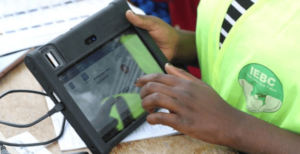From May 1st, Kenyan users of ChatGPT will begin paying a 16% value-added tax (VAT) on their subscriptions. The notice came directly from OpenAI, the US-based maker of ChatGPT, via email to its customers in Kenya.
The move aligns with new tax requirements from the Kenya Revenue Authority (KRA), which is pushing harder to claim revenue from foreign tech firms operating in the country. OpenAI confirmed in the message that the VAT would be included in all invoices going forward.
“In compliance with Regulation 3 of the VAT E-Invoicing Regulations, we will be required to charge and collect VAT of 16% on your invoice,” the company said.
It’s the latest in a growing list of digital platforms now charging VAT in Kenya, following the likes of Netflix, Meta, Google, and Spotify.
Digital Ambitions, Real-World Costs
Kenya is positioning itself as a digital leader in Africa. In February, it launched the National Artificial Intelligence Strategy 2025–2030, which promises to boost innovation, create jobs, and attract foreign investment in emerging technologies.
But that optimism is clashing with reality.
The new VAT, critics argue, is yet another obstacle in a country where internet costs remain high and youth unemployment is rampant. Small businesses, freelance developers, educators, and students—many of whom rely on tools like ChatGPT—will likely bear the brunt of this new cost.
A Tax-Happy Strategy?
The government says it needs to expand its tax base. And the digital economy, growing rapidly and often outside traditional structures, presents a ripe opportunity.
Over the past few years, Kenya has imposed or attempted to impose a flurry of tech-related taxes:
- VAT on foreign digital services
- Excise duty on airtime and digital loans
- A Digital Service Tax (currently suspended)
- Mandatory integration with the electronic invoicing system (EIDMS) by May
But these taxes have been met with growing frustration from citizens, who question what they get in return.
Contradictions in Policy
Experts say this points to a deeper contradiction. On one hand, the government wants to build a future-ready digital economy. On the other, it keeps raising the cost of entry.
Others argue that while tax is necessary, there should be balance—especially when it comes to tools that enhance productivity, innovation, and education.
Who Will Feel It?
While larger companies may absorb the new cost, smaller players won’t find it so easy.
Young developers using ChatGPT’s API to prototype projects, students using it for learning, or freelancers generating content with its help—all will now have to think twice.
No Clear Gains, Just More Charges
The frustration isn’t just about this one tax. It’s part of a larger pattern. In Kenya, more and more services—from staple foods to digital tools—are now taxed. But there’s little sense that the country’s digital infrastructure is improving in step.
And without incentives, grants, or subsidies to support digital adoption, the VAT feels to many like a cash grab, not a strategy.
As May approaches, Kenyan users of ChatGPT may have to choose to pay more, use less, or stop altogether. In a nation trying to lead Africa into the AI age, it’s a choice that speaks volumes.
















